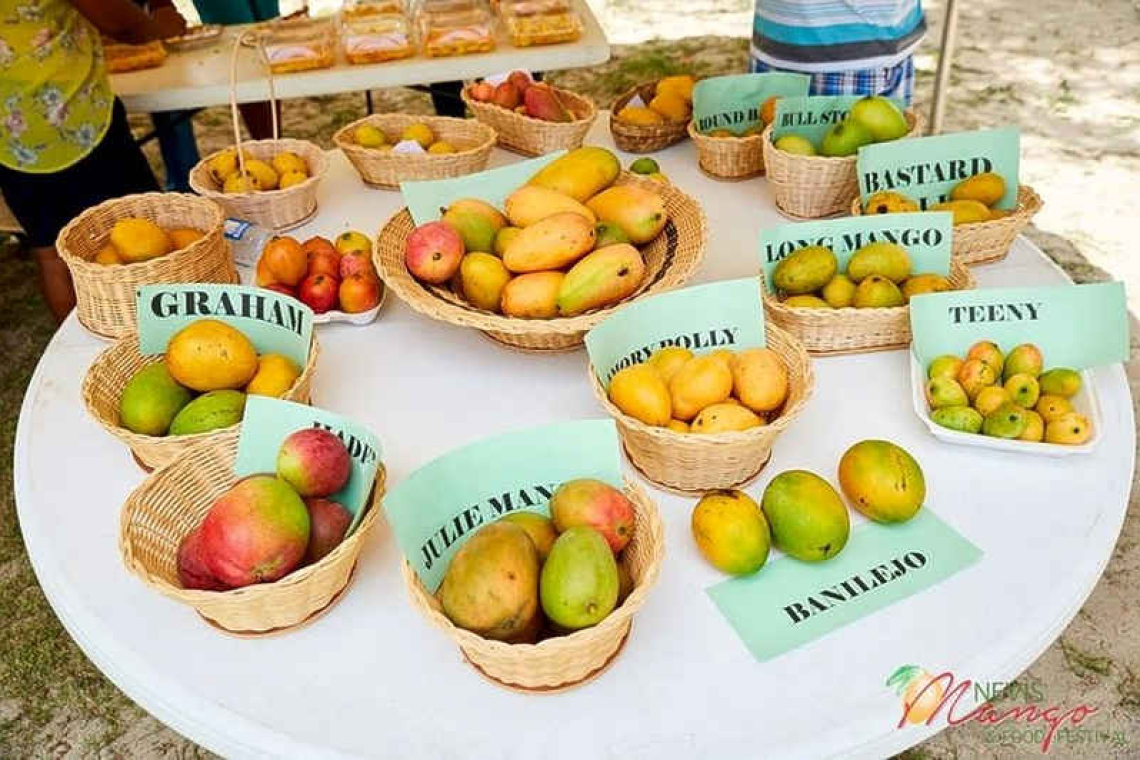We’re seeing mangoes everywhere we turn nowadays. Juicy and sweet, they are such a highlight of summer. Here are some fun facts about mangoes. We bet even the biggest mango-lover will learn something new about them!
The mango belongs to the same family as pistachio, cashew, and even poison ivy. The family is called “anacardiaceae” and over 870 species are counted in this family.
Some people’s skin gets irritated after touching mango, and that’s because an oil in the tree sap, and fruit stems and skin can cause irritation. This oil contains compounds that are also in the mango’s cousin – poison ivy – but at much, much lower levels.
Family aside, even when we focus just on mangoes, there are so many varieties. There are over 1,000 varieties, perhaps as many as 1,500! There are over 100 varieties in the Caribbean, and on many individual islands, big and small, there are dozens.
They have different shapes, sizes, colours, textures and tastes. You’ll notice that some are sweeter than others, or stringier, or juicier… and so on and so on. Some are as small as ping-pong balls, and the largest can weigh up to five pounds!
The mango is originally from India. As such, the word “mango” is also derived from there. The Portuguese got the word “manga” from the word “manna”, which is Malayalam, one of the languages of India. From there, many languages adopted the word “mango”.
You can write either “mangoes” or “mangos” for the plural of “mango” – both ways of spelling are correct – but “mangoes” is the spelling more commonly used and accepted.
The tree was introduced to the Western Hemisphere in about 1700, when it was planted in Brazil. Then it reached this region, the Caribbean, in about 1740 – almost 300 years ago. Now, of course, it is widespread and an important, even defining part of the food culture.
In fact, mangoes have become one of the most important crops, and widely cultivated fruit across many countries in the tropics.
The mango is deeply connected with the folklore and religious ceremonies and art in India. It is the national fruit of India, Pakistan, and the Philippines, and is the national tree of Bangladesh.
When it comes to health, mangoes contain lots of nutrients, as fruit typically does. This includes vitamins A, C, and K, potassium, magnesium, folate, and choline. When the fruit is ripe, there is more vitamin A than when it is green. Remember that vitamin A is associated with orange, so that makes sense, right?
Everyone loves fresh mango, but it’s also very versatile. Many different dishes are made with it, especially since they come in abundance during mango season. They can be preserved by pickling them, making them into jams and chutneys, and they can be used in many different recipes, because they don’t lose their vibrant flavour when cooked or when spice is added to them. They can be made into cold and sweet summer treats, paired fresh with other ingredients, or cooked with different spices in many different dishes.
Mango trees grow deep, strong roots and can grow tall and wide, providing shade in addition to fruit. They can often grow to 60 feet, and even to 100 feet tall. They can live for over 100 years.
Some places, where mangoes are abundant, host mango festivals. One mango festival that has been steadily gaining regional and international attention is on our neighbouring island of Nevis. Along with partners including the island’s agriculture department, the Nevis Tourism Authority is making the most of the abundance of fruit, which is not exported from the island, by hosting the festival every year during peak season. The celebration of mangoes includes tastings, chef demonstrations, eating contests and more fun activities surrounding the fruit.
Photo: Different varieties of mango on display at the Nevis Mango Festival. Picture credit: Nevis Tourism Authority.







